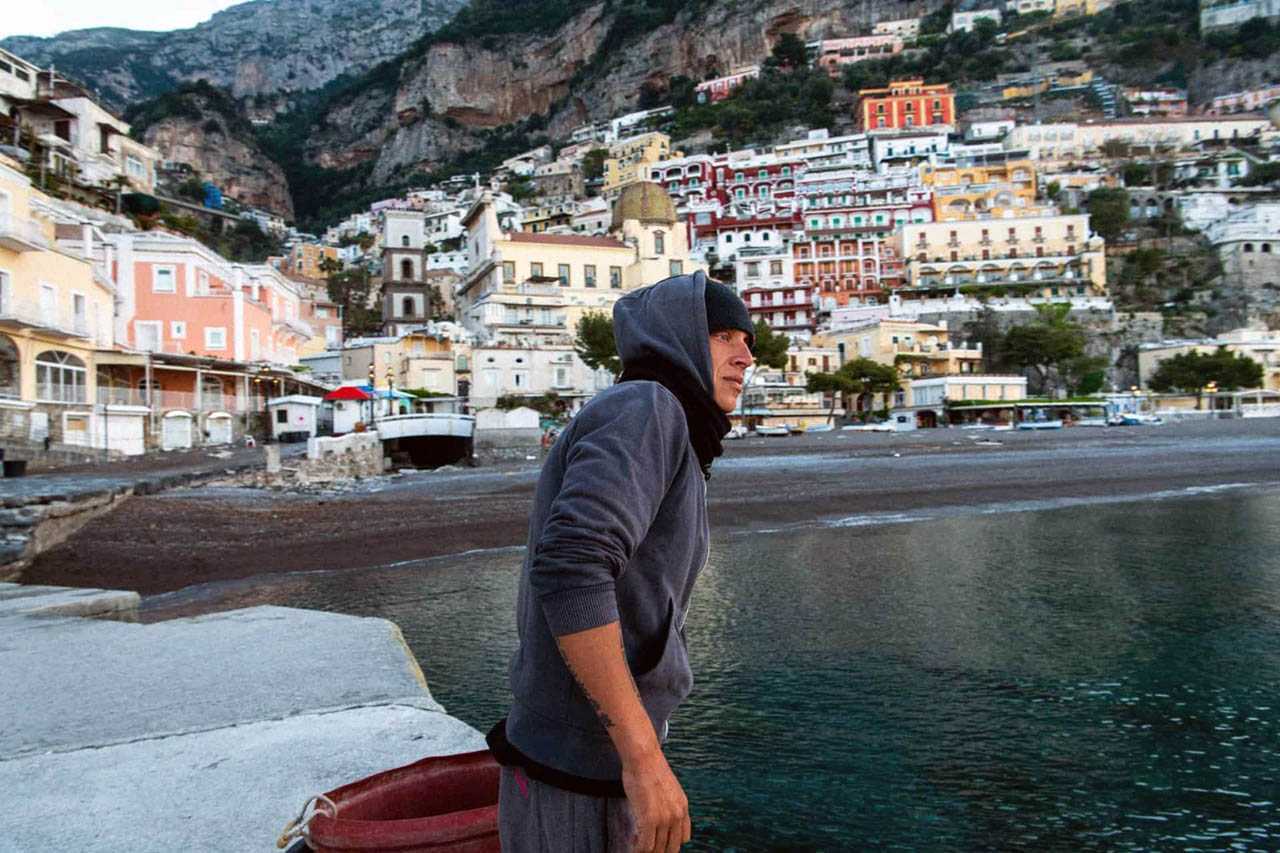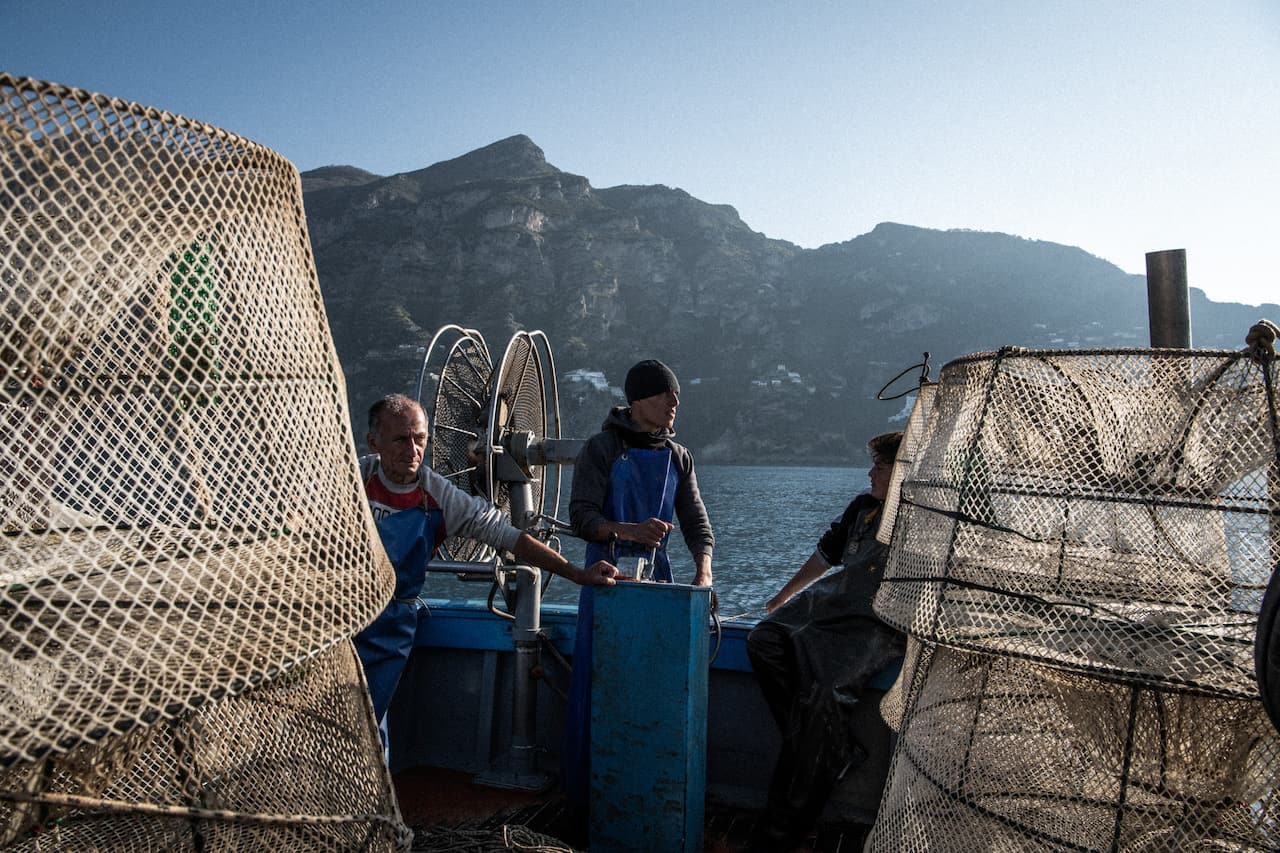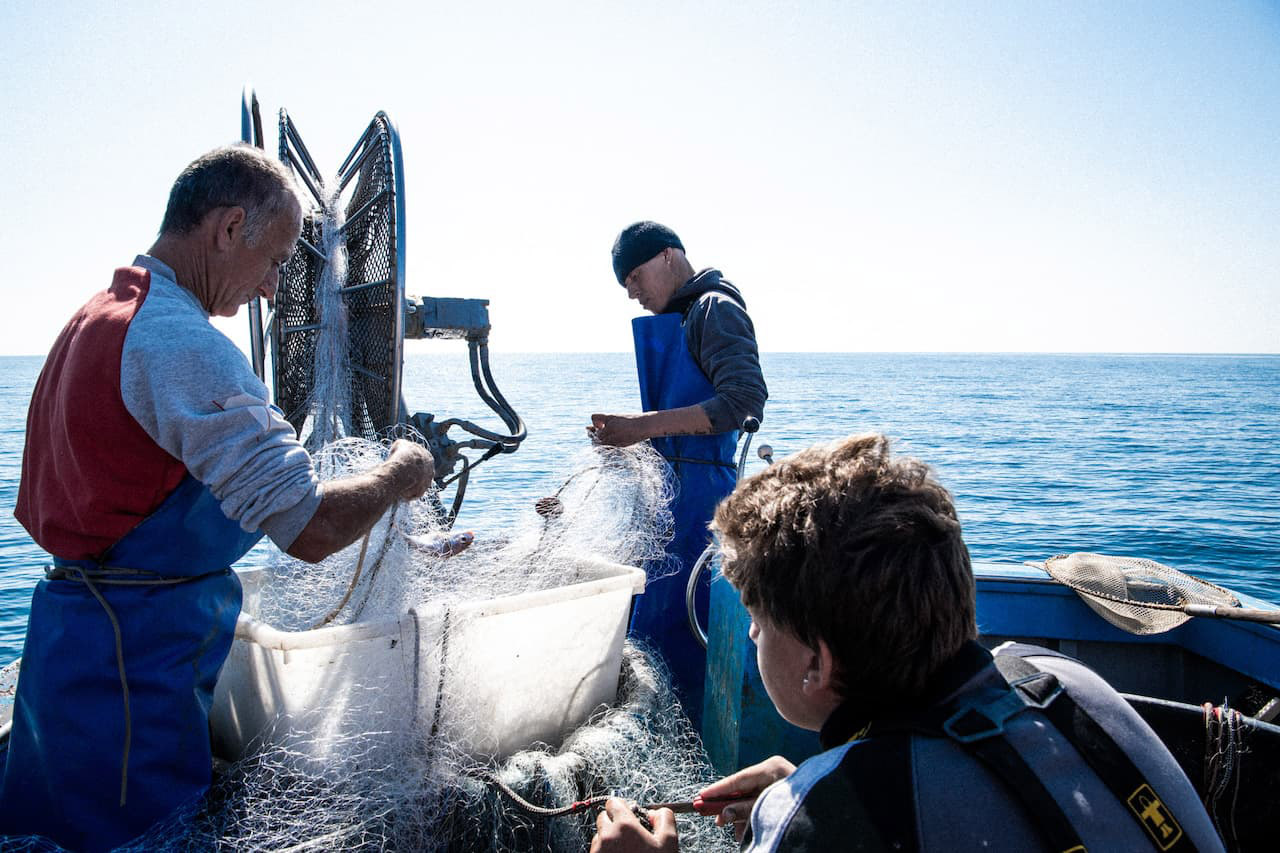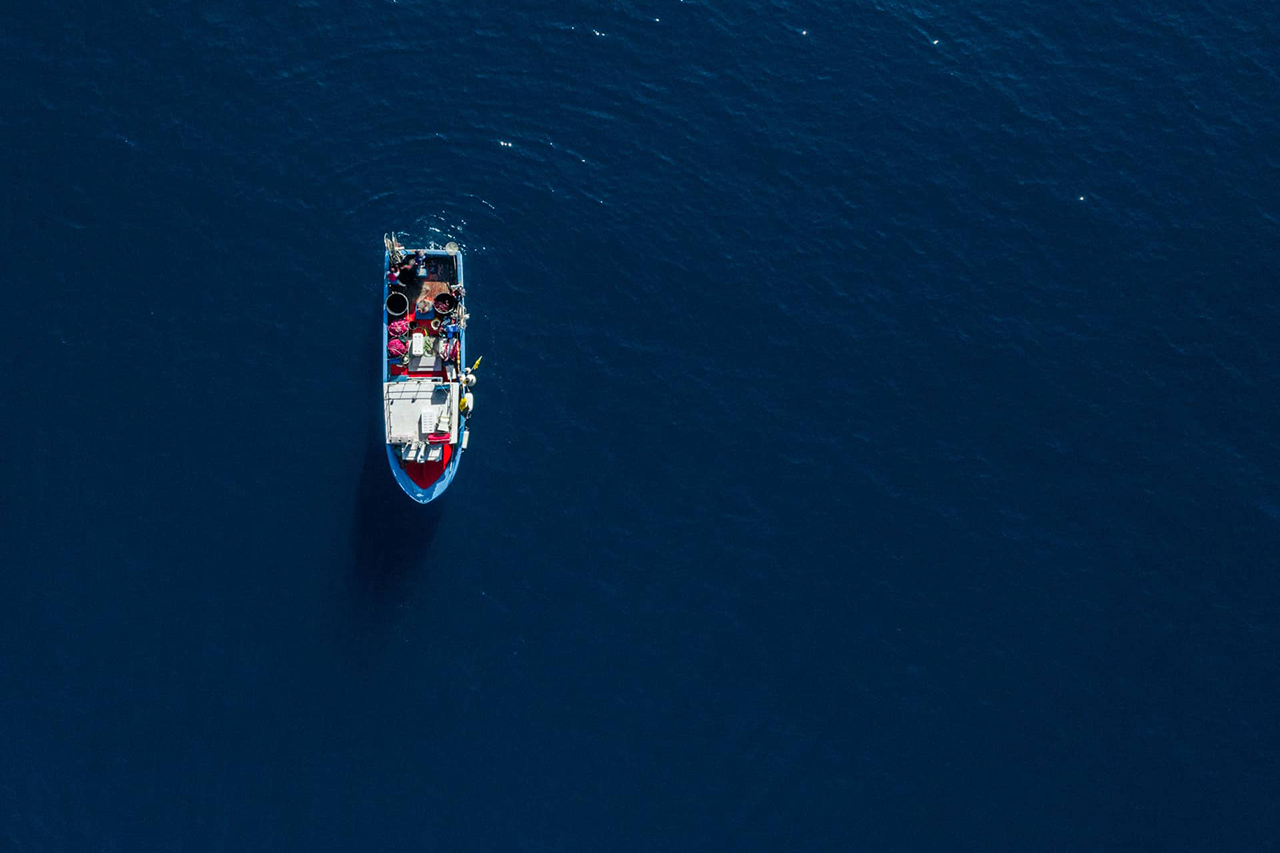Simone Esposito, a Positano fisherman, left the fashion world behind him to follow the sea’s echo.
April 2nd, 2023. By Saveria Fiore, photo by Vito Fusco
In the first hours of the morning, Simone Esposito, 38 years old, is standing next to his boat wearing his signature wool beanie and simple clothes. Simone, born and raised in Positano, comes from a very fashion-oriented family: his father, called Pepito around here, created their well-known brand and has always been appreciated for his kind heart.
Simone didn’t want to continue with the family tradition because the pull he felt coming from the sea was too strong for him to dismiss. “That world never suited me,” he tells us. Still, it was his father who introduced him to fishing when he was pretty young. At sixteen years old, Simone was already sure he wanted to turn this passion into a real job, and that’s what he did.
He has never stopped since then, and it shows in the skillful way he picks up the edges of the net and then cuts them off. “People here call me Pepito as they did with my father. He was a great man, I try to be like him, but I don’t think I’ll be able to,” he says, showing admiration and regret.

Fishing throughout the year
Since the maritime environment constantly changes, fishermen frequently need new techniques to keep up. “Yes, different types of fishing are available, but I believe it is up to us to find clever ways to face new circumstances. Especially now that the sea isn’t as abundant in fish as it used to be, mostly because of pollution,” tells us Simone sounding a bit nostalgic.
The recent lockdown due to the coronavirus situation gave a new beginning to these waters. “We must admit that this pandemic positively affected the maritime environment. We could even enjoy the sight of dolphins!”.
Following the seasonal flow
The fishing business is primarily seasonal, and the most productive seasons are spring and summer. “During spring, we use specific nets to catch cod, cuttlefish, and shrimps. While as soon as we get closer to summer, we focus more on surface fishing using a drift net that, in our dialect, is called scurmara. We go out two-three miles to fish for bonito, mackerel, and alliterate, which means more profitable fishing. Towards the end of summer, it’s time for common dolphinfish (also known as mahi-mahi), and we use palm branches known as cannizzi to catch it. This kind of foliage creates shady areas perfect for attracting those fishes.”

The daily adventure
It is an unpredictable, full-of-surprises line of work. Since fishing is affected by weather conditions, moon phases, and currents, a fisherman’s daily life constantly changes. There isn’t a day that is the same as the one before. “When we go out in the morning, we have no idea if the day will be productive, long or short. But maybe, that’s the beauty of it”. Regarding this topic, Simone shares a fond memory of the unforgettable day when he caught a swordfish weighing a quintal and a half when he was younger.
The sea in the wintertime
Simone doesn’t even let the bad weather faze him. “Another big passion of mine is nature, so when the weather isn’t good, I fix my nets or look after my goats in the mountains.” He also tells us some fishing secrets while pointing out, proudly but shyly, that he did everything that he built up by himself.
“I taught myself everything I know about this job; I learned the various techniques, I observed, tried and sometimes even failed. But I have to thank a man who helped me a lot when I was sixteen years old, and that’s Gennaro Consiglio, called Popotola. He is a 94 years old man from Amalfi who takes his boat out in the sea, even today. I don’t know what I would give to reach his age with the same vitality”.

The secret to happiness
Those who make a living from fishing know the sacrifices required in this field, a commitment that brings satisfaction and struggles. “You need to let passion guide you because you will face many difficulties. I’d like to tell young people to go out there, ride a boat and see if they feel like the sea is calling for them. That way, they’ll know it is the right path. It needs to happen naturally.” Simone tells us, letting us know that the oldest of his three children is contemplating following in his footsteps.
Simone’s bond with the sea is almost visceral, and that’s probably why, even if he has the patent for fishing tourism, he practically never did it. “I abandoned the idea pretty quickly. I couldn’t feel the respect or passion. I must confess that what I prefer is being alone on the boat, just the sea and I”.
Simone’s love for the sea is deep and similar to the one he describes, with eyes full of emotions when talking about his family. His words and truth make Simone a little “isle of resistance,” as the historian Gianni Bosio would say. “People believe that you create your happiness with money, but to me, happiness is to have dreams and look at the sea.”
(Translation by Michela Pandolfi)

